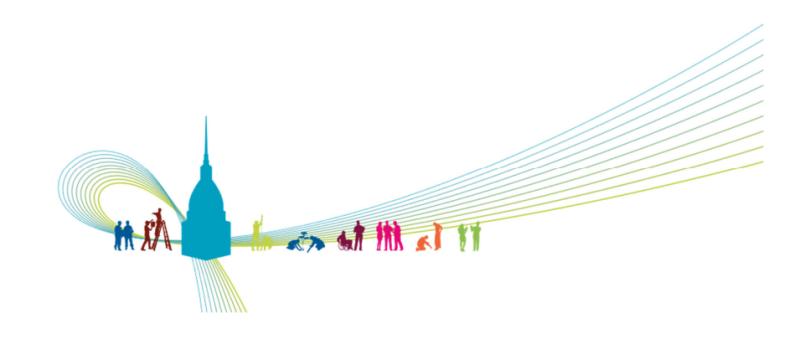
"Together with Ukraine, we can make a difference" says ETF Director
On 12 July 2023, the ETF hosted a meeting to present the results of the latest round of Torino Process monitoring in Ukraine. The Torino Process is a periodical review of policies and practices in vocational education and training (VET), conducted jointly by the ETF and its partner countries since 2010. Launched in 2022, the sixth round of the Torino Process will run until 2024. It focuses on monitoring the performance of VET in providing opportunities for lifelong learning, and on reviewing policies and practices which may influence that performance. In the specific case of Ukraine – an active participant in the Torino Process – the monitoring also considered the effects of the ongoing war on the country’s VET system, and looked at priorities for the future.
Impact of war
Unsurprisingly, the war loomed large over the event. Pilvi Torsti, ETF Director, emphasised how the ETF has looked at the country’s Torino Process results against the backdrop of the Russian invasion. They show that despite the war, Ukraine is continuing on the trajectory of VET development. That message was shared by Iryna Shumik, Director for Vocational Education at Ukraine’s Ministry of Education and Science. Shumik revealed that there had been doubts about whether to start a new round of the Torino Process at all. “But we decided that it was important to look at the challenges for VET at this difficult time,” she said. Indeed, the war has transformed the country’s VET environment, putting a new emphasis on soft skills and projecting sectors like energy, transportation and logistics into the spotlight. “We’re not stopping,” Shumik said. “We’ve identified the needs of the VET sector in times of war, and we’ll be ready for the next round of the Torino Process.”
Success stories
Presenting the results of the new report, the ETF’s Senior Human Capital Development Expert, Mihaylo Milovanovitch, highlighted several key messages. In terms of access and attractiveness, Ukraine offers an interesting case study: although access to initial VET programmes and their attractiveness remain a challenge, Ukraine outperforms other countries in access to continuing vocational training and other learning opportunities for adults. Although the VET system offers limited permeability between learning pathways, Ukraine performs better than other countries in providing good quality learning and training to young people.
Room for improvement
Action areas include the relevance of VET: the employability of Ukraine’s VET graduates remains modest, and links with the labour market could be stronger. Although the country’s VET system performs well in promoting excellence in programme content and implementation, it lags behind other countries in promoting excellence in pedagogy and in the professional development of teachers and trainers. Similarly, although the financial and material resources allocated to VET are relatively high, problems with the adequacy of teaching and learning materials and infrastructural investment remain a challenge.
Responding to war
Olena Lokshyna, the national Torino Process expert for Ukraine, focused on the measures and initiatives launched by the country’s VET sector in response to the impact of the war. Priorities have included creating a safe educational environment, guaranteeing access to VET for all applicants, assuring learning participation and graduation, enhancing the employability of the unemployed, improving the quality of education, and aligning graduates’ skills with market demands.
Planning for peace
But despite the long shadow cast by the war, the focus remains fixed on Ukraine’s recovery at the end of hostilities. Guided by the Conceptual Framework for the Development of Human Capital in VET, the country has launched a comprehensive reform aimed at supporting Ukraine’s reconstruction and European integration. Key objectives include modernising VET content, strengthening institutional capacities, and creating a new network of high-tech and inclusive VET institutions. “The needs of reconstruction imply a whole new mindset with regard to the role of VET in Ukraine,” Lokshyna said.
Focus on the future
In the discussion that followed the presentation, one participant commented that the results obtained by Ukraine in this new round of the Torino Process are a miracle in the context of the Russian invasion and the COVID pandemic. And indeed, despite all the adversity, they show that the country’s VET system is continuing to reform in alignment with its new mission: developing human capital for the purpose of rebuilding Ukraine and integrating it into the EU. The ETF is a willing partner in that mission. “These results confirm that despite the aggression, Ukraine remains focused on the future,” said ETF Director Pilvi Torsti. “Together, we can make a difference. Going forward, the ETF will provide all the support that the country needs.”
Did you like this article? If you would like to be notified when new content like this is published, subscribe to receive our email alerts.